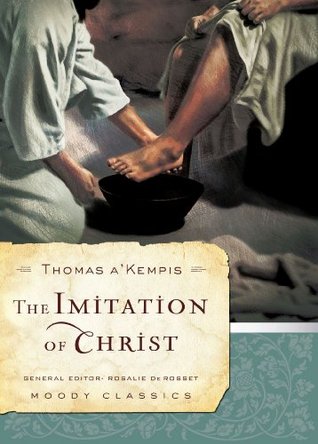More on this book
Community
Kindle Notes & Highlights
Read between
August 31, 2022 - April 6, 2023
What will it avail thee to dispute profoundly of the Trinity, if thou be lacking in humility, and art thereby displeasing to the Trinity?
he is very unwise, that is intent upon other things than those that may serve for his salvation.
If thou shouldest see another openly sin, or commit some heinous offence, yet oughtest thou not to esteem the better of thyself; for thou knowest not how long thou shalt be able to remain in good estate. We are all frail,4 but thou oughtest to hold none more frail than thyself.
A pure, sincere, and stable spirit is not distracted, though it be employed in many works; because it works all to the honor of God, and inwardly being still and quiet, seeks not itself in anything it doeth.
An humble knowledge of thyself is a surer way to God than a deep search after learning;
But because many endeavor rather to get knowledge than to live well; therefore they are often deceived, and reap either none, or very slender profit.
Truly, at the day of judgment we shall not be examined what we have read, but what we have done;5 not how well we have spoken, but how virtuously we have lived.
If thou desire to reap profit, read with humility, simplicity, and faithfulness; nor ever desire the reputation of learning.
WE MIGHT ENJOY much peace, if we would not busy ourselves with the words and deeds of other men, with things which do not concern ourselves.
Some are kept from great temptations, and in small ones which do daily occur, are often overcome; to the end that, being humbled, they may never presume on themselves in great matters, who are baffled in so small things.
In judging of others a man laboreth in vain, often errs, and easily sins;2 but in judging and examining himself, he always laboreth fruitfully.
For God weigheth more with how much love a man worketh, than how much he doeth. He doeth much that loveth much. 2. He doeth much, that doeth a thing well. He doeth well that rather serveth the community than his own will.3
Endeavor to be patient in bearing with the defects and infirmities of others, of what sort soever they be; for that thyself also hast many failings which must be borne with by others.
If thou canst not make thyself such a one as thou wouldest, how canst thou expect to have another fashioned to thy liking? We would willingly have others perfect, and yet we amend not our own faults.
Occasions of adversity best discover how great virtue or strength each one hath. For occasions do not make a man frail, but they reveal what he is.
THOU MUST LEARN to break thy own will in many things, if thou wilt have peace and concord with others.1 It is no small matter to dwell in a religious community, or congregation, to converse therein without complaint, and to persevere therein faithfully until death.2 Blessed is he that hath there lived well, and ended happily.
Never be entirely idle; but either be reading, or writing, or praying, or meditating, or endeavoring something for the public good.
Meddle not with strange writings; but read such things as may rather yield compunction to thy heart, than occupation to thy head.
If thou wilt withdraw thyself from speaking vainly, and from gadding idly, as also from listening to novelties and rumors, thou shalt find leisure enough and suitable for meditation on good things.
It is easier not to speak a word at all, than not to speak more words than we should.


